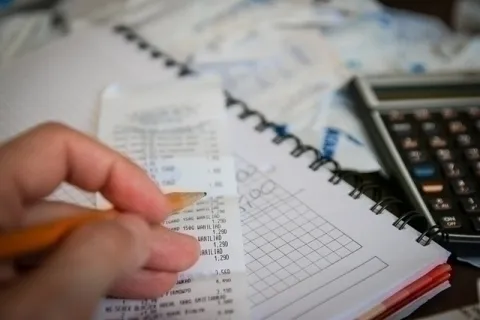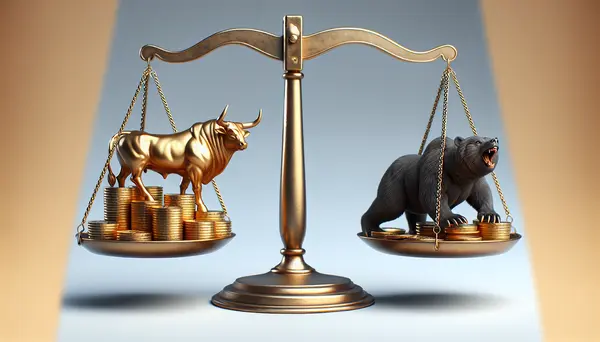- Active trading strategies involve frequent buying and selling to capitalize on short-term market movements.
- Passive trading strategies focus on long-term investment holding and typically involve less frequent transactions.
- Active trading requires more time, attention, and expertise, while passive trading relies on market performance over time.
Been wondering about this for a while now. Can anyone explain the difference between active and passive trading strategies? I'm seeing these terms around a lot and can't quite figure out how they differ. Are there specific situations where one might be more beneficial than the other?
Absolutely, let's dive right in! Active trading, as the name suggests, involves making frequent buy and sell decisions. Traders following such a strategy get their hands dirty, constantly assessing market movements, and making multiple trades each day. It's like being in the driver's seat, having full control.
On the other hand, passive trading is more of a sit-back-and-relax approach. In this type of strategy, traders invest in a market index or a portfolio that's representative of the market and then, they pretty much let it be, making adjustments only occasionally. It's more about long-term growth and less about daily market fluctuations.
Now, as to where each strategy might be more beneficial, it really depends on the individual investor. If you're someone who enjoys thoroughly researching and constantly keeping up to date with the market, active trading could be more up your alley. But, if you prefer a hands-off approach and have a long-term view, passive trading might suit you better.
What do you think? Are you more of a 'grab the bull by the horns' type, or would you rather 'go with the flow'?
Sure thing! So you've got active trading - this is like being in a high-speed car chase. You're out there every day, making moves, zigging and zagging with the market. This isn't for the faint of heart, it needs dedication, fast decisions, and a whole lot of caffeine! It's a thrilling ride, but you've got to be ready for a few bumps in the road.
Then, there's passive trading - this is more like a leisurely road trip. You've got your map (or in this case, your chosen index or portfolio), you set off, and you just cruise along. This isn't about speed, it's about enjoying the scenic route and trusting in the journey. Sure, you might tweak the route a bit now and then, but for the most part, you just stick to the plan and take it easy.
Choosing between the two? Now that's like picking between an action-packed car chase flick or a soothing road trip movie. Are you an adrenaline junkie or a zen master? Hey, only you can decide on this cinema of investing! Do you want popcorn with that?
While both strategies have their merits, neither is a one-size-fits-all solution. It's crucial to bear in mind the potential downsides, such as the higher fees and time commitment required for active trading, or the risk of complacency with a passive strategy where you might miss out on opportunities for greater returns. Always consider your personal risk tolerance and investment goals before diving in.
Got to ponder on the tax implications too. With all that buying and selling in active trading, the tax man could come knocking for his share more often. And for passive? Well, it’s chill until it ain’t. Markets crash and that laid-back portfolio might not be so comfy anymore. Just something to chew on, you know?
Considering the key points, how do you balance the short-term gains active trading offers against the tax hit, and for passive investing, how do you tackle significant market downturns without the frequent rebalancing that active strategies allow?
When approaching either active or passive trading strategies, it's also worth considering the psychological aspect. Active trading might create a high-stress environment due to the need for constant vigilance and decision-making, potentially leading to burnout for some investors. Conversely, passive trading requires patience and a cool head, as reacting too hastily to market fluctuations could undermine the long-term benefits of this strategy. How does one navigate these emotional waters without compromising their financial strategy? Are there any tips or practices you find effective in maintaining a balanced approach?
- What is the role of consumer spending data in market analysis? 3
- How can I analyze the impact of disruptive technology on a market? 3
- What is the role of credit ratings in bond trading? 8
- Can you explain the significance of book value in market analysis? 5
- How do you use financial news and market analysis resources in your trading? 9
- Are there trading platforms that provide tax accounting tools? 6
- What role do regulatory bodies like FINRA or FCA play in your trading activities? 13
- How can I perform a peer group analysis? 2
- What is relative strength and how can it be used in market analysis? 5
- How can I prevent burnout from excessive trading? 7
- How do you navigate the regulations surrounding short selling? 322
- What are Forex trading and its basics? 291
- How does seasonality impact market analysis? 256
- How do you manage stress during volatile market conditions? 221
- How does a stop-loss order work in trading? 207
- What tax implications should I consider when trading? 201
- What are the best platforms for online trading? 196
- What's the difference between day trading and long-term investing? 193
- What is swing trading and how is it different from day trading? 188
- How do you avoid letting past trading successes or failures impact your future decisions? 183

We have compared the best crypto exchanges for you. Just take a look at our free crypto exchange provider comparison.

We have compared the leading crypto tax tool providers for you. Check out our free crypto tax tool provider comparison.
Blog Posts | Current

From Chaos to Consistency: Why a Trading Setup is Key to Success
Trading is an exciting and rewarding way to make money, but it can also be overwhelming for beginners. One of...

Maximizing Returns: The Importance of Rebalancing Your Portfolio
Rebalancing your portfolio is an important part of any long-term investment strategy. It involves periodically adjusting your portfolio's asset allocation...

Automating Your Trades: The Power of Trading Algorithms
As an avid trader, you've probably heard the buzz around trading algorithms. But what are they, and how can they...

Protect Your Capital with Effective Risk Management in Trading
Risk Management As a beginner trader, you're likely eager to dive into the markets and start making some profits. However, before...

Different Cost Average Trading Strategies
Cost Average Trading is one of the most popular trading strategies used by investors to minimize their risk and maximize...

The Trader's Dilemma: Dealing with Losses in Trading
As a trader, losses are an inevitable part of the game. Even the most successful traders will experience losing trades...

Don't Fall for the Hype: The Risks of Using Trading Bots
As a beginner trader, you may have come across the idea of using trading bots to automate your trading and...

The 5 most common mistakes made by crypto traders
The 5 most common mistakes made by crypto traders Crypto trading is becoming increasingly popular, but there is great potential to...

Mastering Your Mindset: The Key to Successful Trading Psychology
As a trader, your success in the markets depends not only on your technical skills and market knowledge, but also...

Breaking Down the Buzzword: What is a Trading Bloc?
Are you familiar with the term "trading bloc"? It may sound complicated, but it's actually a concept that can have...
